There are tons and tons (really, a lot) of articles about ways to make money when you live off-grid, or when you’re a homesteader. Many of them seem to have been written by people who aren’t actually making money by living off-grid… and are not too clear about the research they did.
From my experience (and from what I’ve seen with fellow off-grid adventurers around me), it doesn’t matter much whether you live off-grid or not – there are still just as many ways to make an income and support yourself and your family.
So, dear homesteader, there are thousands and thousands of possibilities when it comes to choosing a moneymaker for your farm. I could list each and every one of them separately, but I won’t. This article is all about choosing a general direction, or a new career path if you will.
Before We Start…
I believe it’s important to choose a general direction first.
Do you want to work with people or do you prefer to work alone? Do you have (hidden) talents and skills that you’re ready to put into action, or do you want to learn as you go? Do you have the budget to spend on setting up your business, or are you starting out with not much?
A second important thing is to know how much money you’ll need to live on every month, once you’re living off-grid. (For more on this, read my post about how simple living saves us money (and sometimes it doesn’t).
If you’re no longer commuting, you’ll save a lot on gas, and you probably don’t need that second car anymore. If you’re growing your own food, down goes the grocery bill. Also living further away from the “real world” means you don’t need to buy as much “stuff”. You might wear the same sturdy working clothes every day (do keep that one pretty little dress at the ready for that rare weekend away with the girlfriends though).
Last but not least, living off the grid means you’ll probably adopt a healthier lifestyle. Eating what you grow (and what comes out of the chicken’s bum), being out and about all day – not only could it lower your medical bills, it also saves a fortune on a gym membership.
How To Earn Money From Your Off-Grid Home
1. Starting an Online Business
So many jobs can be done online these days. You can work remotely at a conventional job, blog, set up online courses, or finish that book you always wanted to write.
If you’re good with admin or social media, one option is to help out people with their (online) business from the comfort of your own home. When we first moved off-grid, I worked as a virtual) assistant and social media manager. I also managed a website called “Blogging Apprentice”, helping starting entrepreneurs and bloggers find all the information they needed to rock their online presence.
Now I work as an online business strategist, helping online entrepreneurs grow a business that fits and supports their dream lifestyle. I help them set up systems and strategies so they can stop wasting time – and start making an impact. I love my job, as no two days are the same, and it allows me to choose my working hours, and the location I work from.
If you decide to set up as a virtual service provider, you could specialise in social media marketing, general admin, event management or planning travels – or anything else you are good at. If you’re skilled at graphic design, building websites or coding, there are so many ways to earn your living.
Or you can go a step further, and help more than one person at a time with your skills and expertise – write an e-book, create a course or host a membership website.
- Pro: you choose your working hours, and you can take your work with you when you travel.
- Con: it’s a sitting job… If you’re on a deadline, it might require you to sit behind a desk for days on end, while life on the farm goes on without you.
- Required skills: you have to be good at time management – make sure you don’t have a series of deadlines during planting season (or worse, harvest) or you might have to resort to hiring help to keep the farm going.
- Starting capital: you can start an online business with very little money – a good computer with the right software will get you far. Depending on your experience in your chosen field, you might have to invest in some additional education as well.
2. Market Gardening
If you’re planning to start a garden, you could take it up a notch and garden for other people as well.

Look into selling your homegrown fruit and vegetables at a local farmers’ market or alternative market. If you’re further away from the local market, you could start a CSA box delivery – this allows you to meet private customers directly at a convenient drop-off place (usually weekly) and hand them a choice of whatever is fresh and seasonal right now.
If you’ve got the gardens, but not the energy (or the time) to sell your vegetables, consider a “pick and pay” system. People could come to your farm to pick their own produce (after you’ve given them guidelines on what and how much to pick at that time). Your visitors only pay for what they pick; the price is lower than they’d pay in the shop, but it saves you the trouble of harvesting, sorting and selling your produce.
If people aren’t buying all your vegetables, you can resort to canning your produce and building a fantastic pantry to withstand the harshest winter.
As an extra by-product, you can also sell seedlings, seeds or even (baby) trees.
- Pro: you get to work outside and on the land
- Con: driving to farmers’ markets might be a bit of a hassle if they’re not close by. Also, you’re dependent on the weather!
- Required skills: you’ll need a green thumb, garden planning skills and the ability to manage and market a business.
- Starting capital: you will need a decent piece of land. In some cases, land can be borrowed or leased. It’s possible to start a market garden on a smaller plot; the story of JM Fortier and his extremely profitable 5000m2 market garden is very inspirational when it comes to micro-gardening. You also need to make sure you’ve got the right soil (if not, you might need to build it up first) and have good-quality seeds or seedlings to start with.
If you want to start selling fruits and nuts, you’ll need to buy an existing orchard (more expensive than your average bare land) or buy lots of trees and wait for them to mature and start producing.
3. Farming With Animals
Farming (to me) is anything that can be done on a farm that requires a bit more investment (in time, money or otherwise) than just vegetable gardening.
You can go into chicken farming or keep animals for wool; get sheep – or think outside the box and go for alpacas.
Maybe you’d prefer to keep animals for milk and cheese (cows, goats or sheep – horse milking is an interesting niche as well) or if you have sufficient land of good quality, you could even have your own herd of grass-fed cattle.
- Pro: you get to work outside on the land
- Con: keeping animals on a farm requires you to be there 365 days a year. Unless you find a miracle farm sitter, there are no days off in farming… especially if you have to milk the animals as well.
Keeping farm animals is hard work; making sure they have cool water in summer and unfrozen water in winter, feeding them, and relocating them if you’re rotating pastures. Automatisation is possible, but costly. - Required skills: if you’re going to work with animals, you need to know them inside out. If you haven’t got much experience, courses and additional workshops can be found all over the globe.
- Starting capital: buying good stock animals to start a herd with is more costly than buying a bunch of animals to keep as a hobby (you can often get those for free). Don’t underestimate the costs of housing and fencing; although the internet might say you can build a stable “for free”, the reality is often that it either requires patience and frequent trips to the dump to collect the materials – or money to buy what you need.
Starting capital is not the only thing by the way – there are vet costs (for vaccinations, health issues and accidents, maybe birthing assistance) and, depending on where you are, there could be extra permits and requirements for your property.
4. Homemade Products
If you’ve got a talent for crafting, carpentry, spinning or making pottery – you might be able to make artisanal goods to sell on Etsy, through a local shop or in a webshop of your own.
Soap and cheese-making are popular options, but maybe your own home-canned tomato salsa or olive oil are possibilities as well.
- Pro: Making your own products and selling them to others is just awesome and very satisfying!
- Con: Depending on what it is you make, you might need to invest in equipment, materials or maybe even a safe and clean environment to make it in.
- Important: know the regulations – you might be required by law to adhere to certain rules (like a sterile room to prepare food).
- Required skills: if you can’t think of any talent that you could use to generate some income, you can learn new skills (maybe best to do this before you move off-grid); soap-making, canning or knitting goat sweaters can be learned and with some experience, experimentation and hard work, you can become an expert. You’ll also need the ability to market your products (or you could find somebody to do that for you.)
- Starting capital: that all depends on what you’re planning to do, and how much of the necessary tools and materials you already own. Sorry, no advice here.
5. Tourism
Have you thought about hosting guests on your property, Airbnb-style or maybe even with a real bed & breakfast? You could rent out a cabin, tents (ever heard of glamping?), or turn the extra bedrooms in your house into a B&B like we used to do. (Except we built those extra bedrooms on purpose!)
We know a few people who move out of their houses during tourist season, so they can rent out the entire house. Then they live in a cabin during the summer or spend the time traveling.
If the location allows it, you can hold retreats or workshops – turn that barn into a yoga loft or learning centre, get in touch with teachers and travel agents, and the world is your oyster.
If that’s all a bit much for you, you can also stay small – work as a trail guide or offer 4×4 rides or farm tours.
- Pro: if you like people, it’s a lot of fun. You meet new people at every turn, and if you’ve done your marketing right, they’ll be really interested in what you’re doing, and happy to pay for all the information you share.
- Con: if you don’t like working with people or don’t see yourself in a service-based role, you might want to consider other options. Don’t forget that if you have a B&B, you will have people on your property for weeks on end. If you moved off the grid for peace and tranquility, that can be just a tad bit too much.
- Required skills: hospitality can be learn-as-you-go, but do visit or even help out at another similar place before you start your own, to avoid making big mistakes in your setup.
- Starting capital: depends on what you already have. If you’ve got a house with extra rooms, you can earn the investment costs from your guest rooms back in just one season. If you’re building a brand new retreat centre from scratch, it will take a lot more time. Doing 4×4 tours just requires the 4×4 (and a license, more than likely). If your farm is worth showing people around, it doesn’t cost anything other than your time.
Read more: about what we learned from starting a bed & breakfast.
6. Working Away From Home
If you like the job you’re doing now (or the job you were doing before you moved off the grid), in many cases you could keep doing it on a consulting or interim basis.
Many people around here do this; they live in the middle of nowhere for most of the year, but fly out every now and then to work on a project. They are usually able to stay at a friend’s house or a hotel paid for by the company that hires them; often the income from a few weeks’ work will allow them to live well for months off-grid.
- Pro: in just a few weeks, you can earn enough to live on the farm for months
- Con: it requires you to be away from home
- Required skills: obviously, this option is only available if you’re already good at what you do. If you lack experience and connections, it could prove difficult to find clients to hire you.
- Starting capital: will depend on what exactly it is you do. You need to buy software for yourself if you’ve been using the company’s software all that time; for a physical job, you need to buy your own tools or machines. Again, I can’t be very helpful here.
The Main Idea…
If you want to earn money while living your desired lifestyle in your off-grid homestead, I hope this helped to inspire you. Think long and hard about what it is you’d really like to do – and any hidden talents you might have in that area. You might need to compromise at first by doing something that is not your dream job, but if you give yourself the time to take the right (online) classes, do some (online) networking and prepare well for the rest of your life… I sincerely hope things will work out for you.
Are you currently living on your farm and working from home? If so, what are you doing? If you were able to work from home, what would be your dream job? Or maybe you don’t want to work from home… why not?


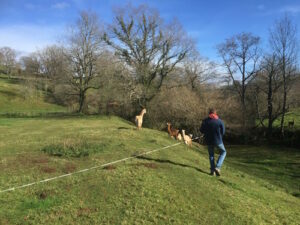
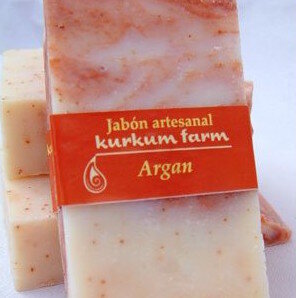
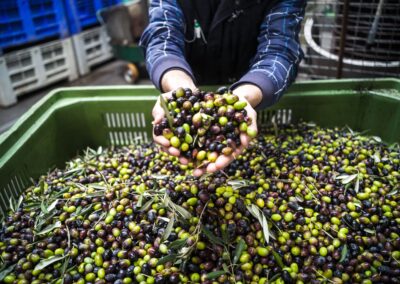
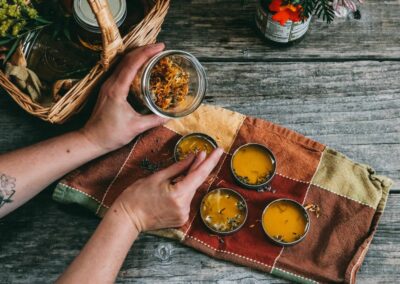
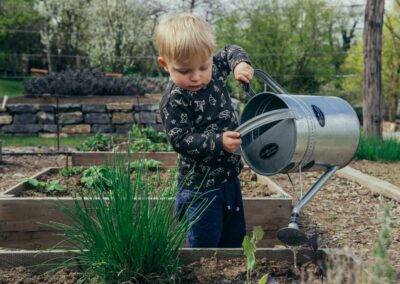



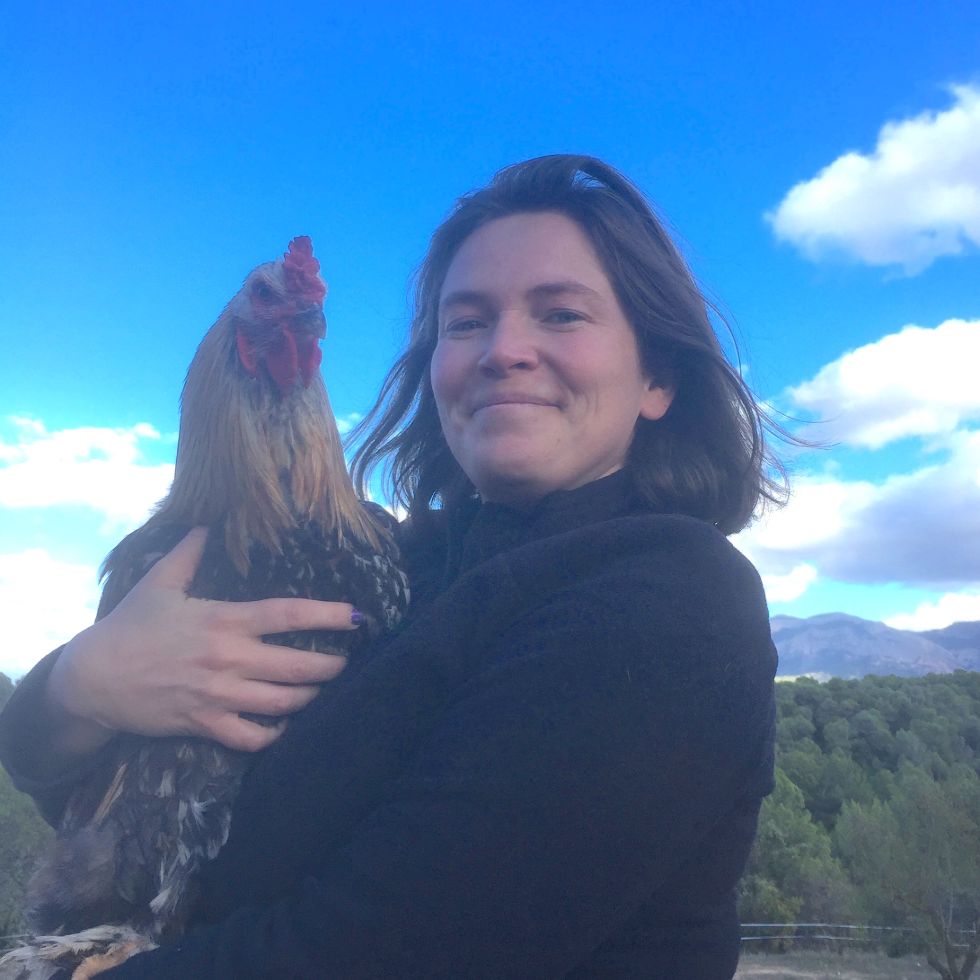

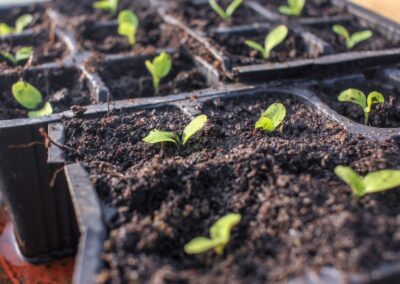
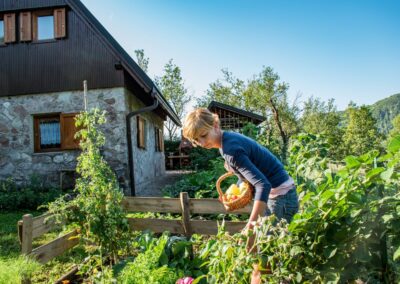

0 Comments